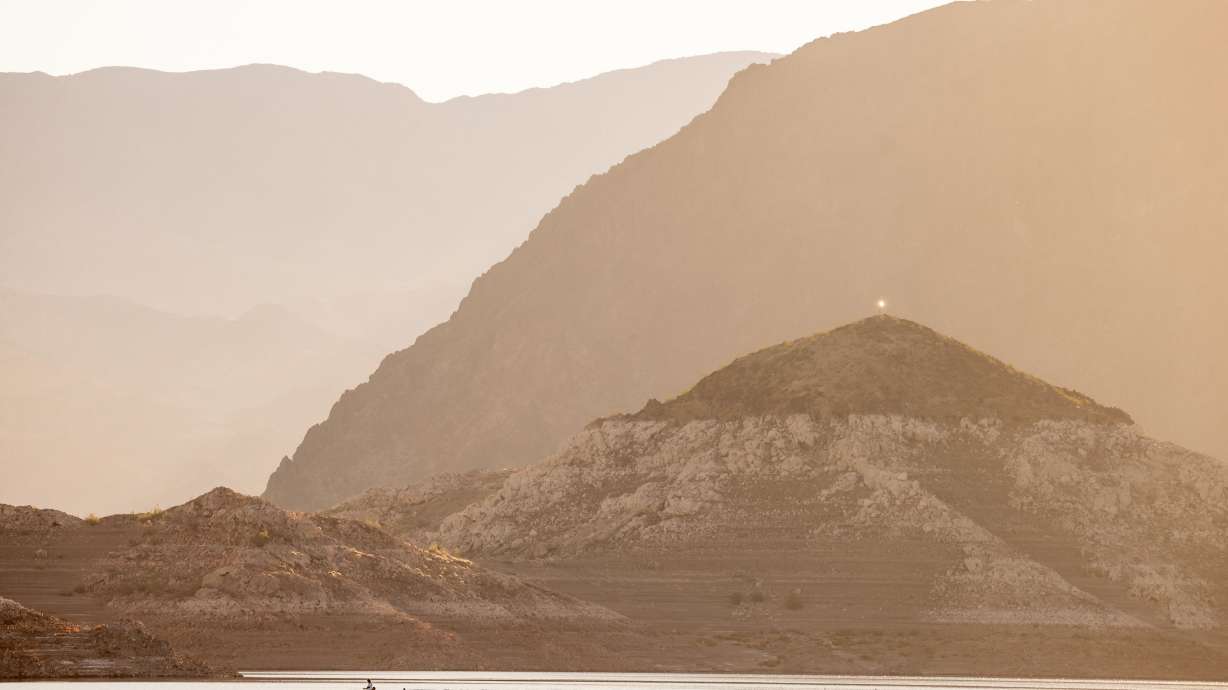Estimated read time: 2-3 minutes
This archived news story is available only for your personal, non-commercial use. Information in the story may be outdated or superseded by additional information. Reading or replaying the story in its archived form does not constitute a republication of the story.
LAKE MEAD, Nev. — As Nevada's Lake Mead continues to shrink amid historic drought, the National Park Service has developed a three-option plan, including ripping out infrastructure for concessions, eliminating drinking water availability and taking no further action on extensions of boat ramps at its marinas.
Infrastructure like marinas, according to the plan, would be removed once funding is available.
The park service released the three-pronged plan in November and closed public comment Jan. 20 after a series of public meetings.
"Three preliminary management concepts are being explored. Each concept is subject to available funding, financial viability, safety and operational assessments, and technological capabilities at the park. Before the National Park Service can implement the listed actions, water levels need to be sustained based on steady water level projections from the Bureau of Reclamation," the newsletter on the plan said.
In lieu of taking any action on extending boat ramps at the marinas, the plan envisions the support of new and existing land- and water-based sustainable recreational opportunities, such as kayaking, paddle boarding, biking, hiking, swimming and camping.
It also said that as the reservoir shrinks, damage to natural and cultural resources is happening, which needs to be addressed.
The third option of closures brought strident objection by Sen. Jacky Rosen, D-Nev., who wrote to Charles F. Sams III, director of the National Park Service as part of those public comments, arguing that the Lake Mead National Recreation Area is the fifth most-visited park in the National Park System, with about 7.6 million visitors.
"While I understand the need to consider a variety of options, Concept 3 — which would essentially discontinue concession services, remove facilities and infrastructure, and give no consideration to future extensions or relocations of boat launch ramps and marinas — is not a viable option," she wrote. "Concept 3 is not a solution, but rather will greatly reduce recreation and visitation and shut the doors of small businesses in southern Nevada, depleting critical revenue streams for local economies."
The park service's Sustainable Low Water Action Plan includes "preliminary park management concepts," according to the federal agency, and is under review. The options hinge on both water levels at the nation's largest reservoir, and for continued action and federal funding.
Rosen said it is imperative that communities and recreation areas find viable solutions to the current drought, without removing access.
"I stand ready to assist (the park service) in maintaining and improving recreation access at Lake Mead, while overcoming the barriers we face with the rapid decline in water levels," Rosen wrote.
"During the 117th Congress, I helped secure additional funding that could be used by (the service) through the bipartisan infrastructure law, the Inflation Reduction Act, and the final bipartisan government Page 2 funding package to address this unprecedented drought and support new water infrastructure."
The park service said it plans to include additional public engagement this spring before a decision is reached in early summer.









